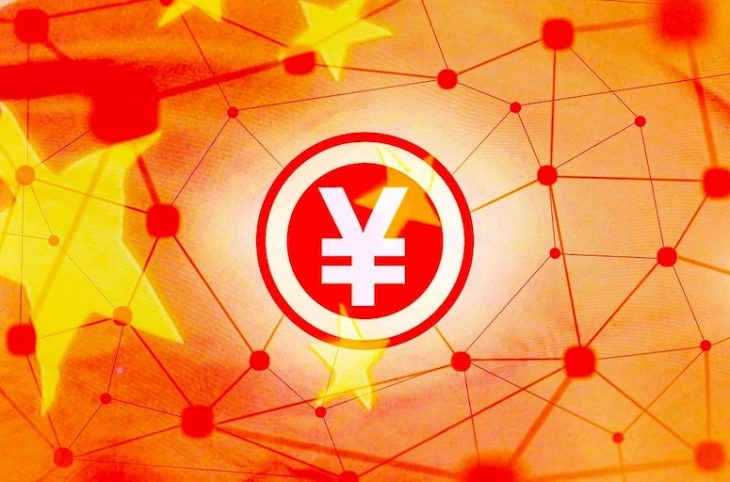 Chinese President Xi Jinping believes corruption to be its government’s biggest threat
Chinese President Xi Jinping believes corruption to be its government’s biggest threat
The informal/black economy means it is difficult for the Chinese government to collect the correct taxes due, it also creates inequality in society, and is thought to be one of the ways that Chinese citizens take money out of the country. "The major business for most underground banks is now contra payments, leading to huge capital outflows and great damage to society. It's the major target of our crackdown," according to a recent notice issued by China's Supreme People's Procuratorate and reported in the South China Morning Post. The black economy arguably is responsible for China being such a huge producer of counterfeit products (reportedly accounting for over 50% of all counterfeit goods manufactured globally), which often rely on cash transactions, so once again avoiding the collection of taxes.
The above illustration is calculated by Transparancy.Org (a not-for-profit organisation located in Berlin), which studies 180 countries to create the “Corruption Perception” scale. Based on the latest data, from 2017, China is ranked 77th. One of the reasons that this type of analysis is important is that foreign investors are less likely to invest in a country that has high levels of corruption. Less foreign investment leads to fewer jobs being created and slower economic growth.
In the past, while the Chinese economy was growing at 8% to 10% a year, it seemed that China turned a ‘blind eye’ to its black economy. However, as the economy slows and China’s once-massive trade surplus potentially turns to a negative, Chinese authorities are looking at ways that it can better control money in its economy.
China’s central bank, the People’s Bank of China (PBOC), has the dual mandate of maintaining price stability while promoting growth, using a selection of monetary policies. One of the ways that the PBOC is hoping it can assert greater control over its economy is by launching its Digital Currency.
China's current-account surplus has been shrinking rapidly, to less than $50 billion in 2018 from more than $300 billion in 2015, and this trend is expected to continue. After rising to nearly $60 billion in 2019, it will fall to about $20 billion in 2021, according to forecasts by the International Monetary Fund. The trade war between China and the USA shows no signs of ending. In 2018, China exported $539.5 billion worth of goods to the U.S., 4.5 times more than the U.S.’s $120.3 billion worth of shipments to China. However, China’s goods trade surplus is around $400 billion p.a., while its trade deficit in services continues to grow. Once you then add in the impact of “shopping sprees”, the United Nations World Tourism Organisation calculates that Chinese tourists overseas spent $277.3bn in 2018, compared to Americans, who only spent $144 billion! It is not difficult to see where the money is going.
In the light of the huge amounts of cash that is “sloshing around” the Chinese economy, the PBOC believes that by issuing a Digital Currency, it can hopefully take control back. The crux of the proposal is to initially replace...
The above illustration is calculated by Transparancy.Org (a not-for-profit organisation located in Berlin), which studies 180 countries to create the “Corruption Perception” scale. Based on the latest data, from 2017, China is ranked 77th. One of the reasons that this type of analysis is important is that foreign investors are less likely to invest in a country that has high levels of corruption. Less foreign investment leads to fewer jobs being created and slower economic growth.
In the past, while the Chinese economy was growing at 8% to 10% a year, it seemed that China turned a ‘blind eye’ to its black economy. However, as the economy slows and China’s once-massive trade surplus potentially turns to a negative, Chinese authorities are looking at ways that it can better control money in its economy.
China’s central bank, the People’s Bank of China (PBOC), has the dual mandate of maintaining price stability while promoting growth, using a selection of monetary policies. One of the ways that the PBOC is hoping it can assert greater control over its economy is by launching its Digital Currency.
China's current-account surplus has been shrinking rapidly, to less than $50 billion in 2018 from more than $300 billion in 2015, and this trend is expected to continue. After rising to nearly $60 billion in 2019, it will fall to about $20 billion in 2021, according to forecasts by the International Monetary Fund. The trade war between China and the USA shows no signs of ending. In 2018, China exported $539.5 billion worth of goods to the U.S., 4.5 times more than the U.S.’s $120.3 billion worth of shipments to China. However, China’s goods trade surplus is around $400 billion p.a., while its trade deficit in services continues to grow. Once you then add in the impact of “shopping sprees”, the United Nations World Tourism Organisation calculates that Chinese tourists overseas spent $277.3bn in 2018, compared to Americans, who only spent $144 billion! It is not difficult to see where the money is going.
In the light of the huge amounts of cash that is “sloshing around” the Chinese economy, the PBOC believes that by issuing a Digital Currency, it can hopefully take control back. The crux of the proposal is to initially replace...
#FrontierInsights
#DigitalCurrency
#China


